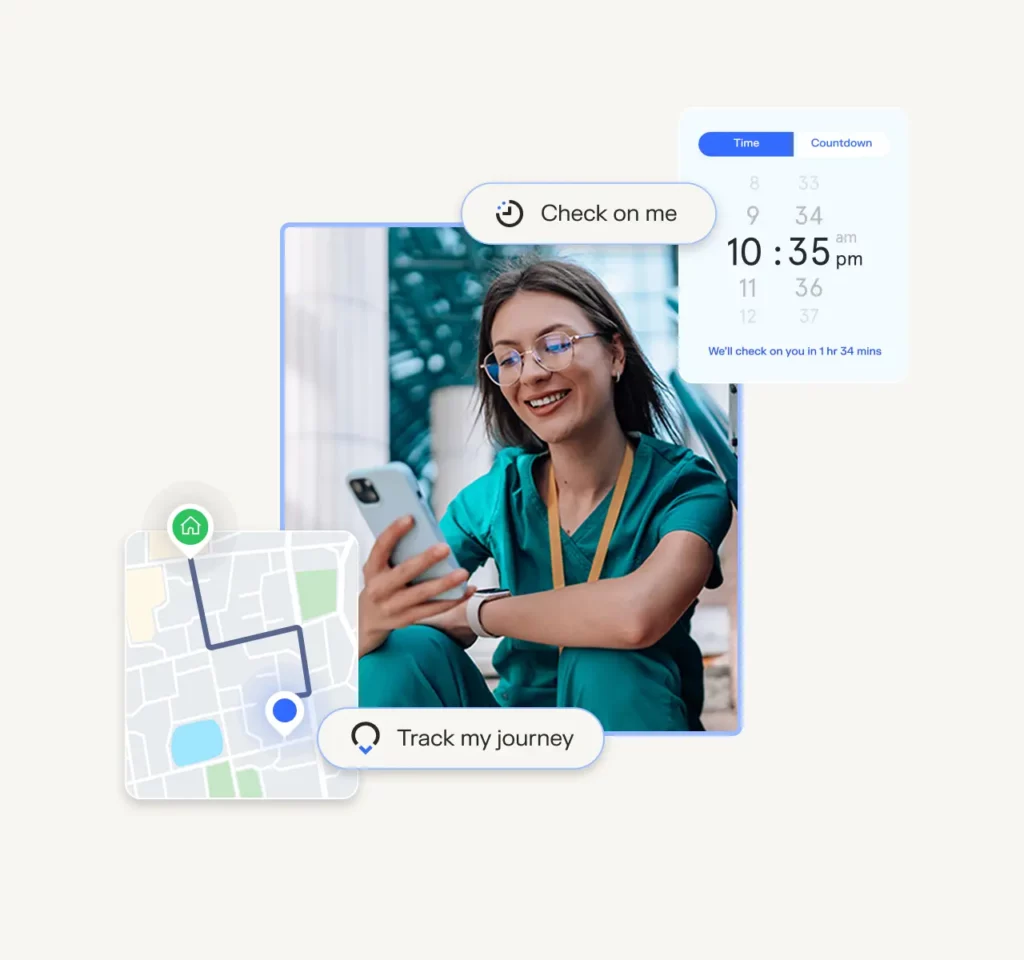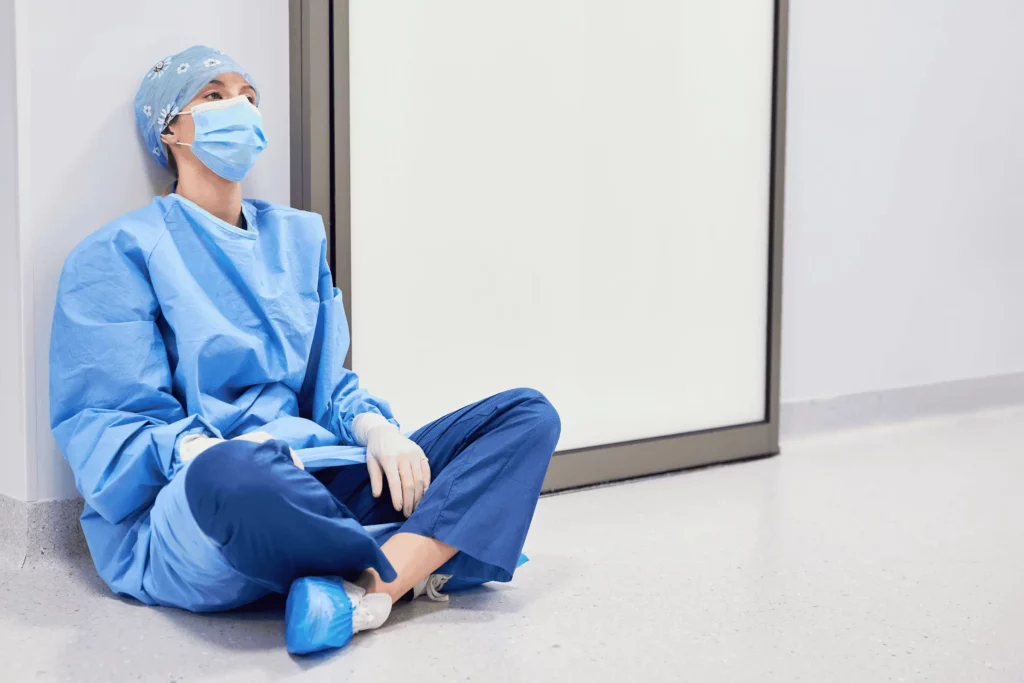Recent data from SafeWork NSW shows that healthcare and social assistance are grappling with a significant surge in workplace injuries, evidenced by over 18,000 workers’ compensation claims and a staggering 1.2 million lost workdays in the past year. This marks a significant escalation from the previous year’s figures of over 17,000 claims and 836,652 days away from work.
We recognise the immense pressures and responsibilities that fall upon the shoulders of employers and managers in the healthcare sector. They navigate complex systems, resource constraints, and the ever-present demand for high-quality care. It’s within this challenging landscape that we’re seeing this concerning increase in injuries, a trend that impacts not only individual workers but the very sustainability of our healthcare system.
At Sonder, we believe that ensuring the wellbeing of healthcare workers is a shared goal. Just as effective patient care relies on well-designed systems – a safe and supportive work environment requires a collaborative effort. Understanding the multifaceted reasons behind these rising injury rates is the first step towards forging solutions that work for everyone.
Key points:
- New data reveals a significant and concerning increase in workplace injuries within NSW healthcare.
- This trend impacts your staff wellbeing, your bottom line (rising costs), and the quality of patient care your organisation provides.
- Proactive, comprehensive safety strategies are no longer optional – they are essential for a sustainable and thriving healthcare environment.
Investing in your staff’s safety directly translates to a more engaged workforce, better retention, and ultimately, improved patient outcomes.
Why are injury rates climbing?
The factors contributing to these increased injury rates are often deeply intertwined with the demanding nature of healthcare:
The distressing reality of workplace violence and aggression places immense strain on frontline staff. Employers and managers grapple with creating safe environments while providing open access to care.
The sheer physical demands of manual handling and patient care present inherent risks, and finding sustainable solutions that protect both staff and patients is an ongoing challenge.
The psychological toll of healthcare work is often invisible but profoundly impactful. Managers are tasked with supporting teams facing high levels of stress and potential trauma, and providing adequate mental health resources can be complex.
Mental health conditions accounted for 10.5% (14,600) of claims in 2022-23. This is a 19.2% increase on 2021-22, and a 97.3% increase compared with 10 years ago. Additionally, recovery time for mental health injuries is 5x longer than for physical injuries. The financial burden of serious mental health condition claims is also substantial, with a median compensation payout of $65,400. This is more than four times the $14,400 median compensation across all serious claims.
The data from Safe Work Australia, highlighting the prevalence, longer recovery times and cost for mental health-related claims, underscores the magnitude of this challenge.
Even seemingly minor issues like slips, trips, and falls can have significant consequences in busy healthcare settings, requiring constant vigilance and preventative measures.
The risk of serious injury is markedly elevated for those working in Healthcare and Social Assistance (including disability support), according to SafeWork Australia. For every million hours worked in this sector, there were 8.8 serious injuries* reported. This is a grim contrast to the 6.5 serious injuries per million hours worked across all other industries. *A serious injury is classified as one resulting in over a week of absence from work.

Beyond the immediate impact
The consequences of inaction extend far beyond the immediate injury. Organisations face:
- A loss of valuable expertise through increased workforce attrition. When healthcare professionals don’t feel safe and supported, they may choose to leave the sector, leading to a loss of vital skills and experience.
- A significant financial strain due to rising workers’ compensation costs. The sheer volume of claims and the extensive time off work translate into substantial financial burdens for healthcare providers. The 1.2 million lost workdays in 2023 underscore the magnitude of this economic impact.
- A compromise in care quality with an impact on patient outcomes. Overworked, stressed, and injured staff may find it challenging to provide the highest level of care, potentially impacting patient safety and satisfaction.
How can employers take a proactive approach?
Just as healthcare relies on structured systems and evidence-based practices for optimal patient care, a proactive and systematic approach to workplace safety is essential. Employers in the healthcare and social assistance sectors have a crucial responsibility to move beyond basic regulatory compliance and cultivate comprehensive strategies that genuinely prioritise the wellbeing of their workforce.
Investing in the safety and wellbeing of our healthcare workers directly translates to better patient care. Staff who feel safe, supported, and healthy are better equipped to provide the compassionate and effective care our community relies on. Reduced burnout and injury rates can lead to greater staff retention and continuity of care, ultimately benefiting patients.
This involves a fundamental shift towards a safety-first culture, embedded in every aspect of the organisation.
“I wanted to work on proactive wellbeing, not reactive. Sonder gave us the opportunity to provide our employees with insights and education as well as a 24/7 support service.”
HR Director at Medline
View the Medline case study.
Where Sonder can help
At Sonder, we understand the unique challenges faced by the healthcare industry. Our 24/7 support and real-time safety solutions are designed to complement the crucial work you do, providing a safety net for your most valuable asset: your people.
- Always-on support: Medical, safety, and wellbeing at their fingertips. Through a single app, your employees gain immediate access to medical professionals, mental health experts, and real-time safety tools, ensuring they have support whenever and wherever they need it. Organisations like Australian Red Cross, Medline, and DPV Health trust Sonder to extend their care commitment to their teams.
- Early intervention: Addressing burnout and absenteeism proactively. The demanding nature of healthcare can lead to burnout and compassion fatigue. Sonder provides proactive mental health support and resilience-building programs, helping to mitigate these risks before they escalate into absenteeism and turnover.
- Personal safety: Protecting frontline and community-based workers. Whether in a hospital, aged care facility, or providing in-home support, healthcare workers can face safety concerns. Sonder’s personal safety features like ‘Track My Journey,’ ‘Check on Me,’ and 24/7 safety alerts provide crucial peace of mind and a rapid response when needed. In critical situations, Sonder can even dispatch responders to their location.
- Mental health support: Addressing trauma and building resilience. The emotional toll of healthcare work is significant. Sonder offers 24/7 access to mental health professionals, trauma support, and self-help resources, fostering a more resilient and engaged workforce.
- Reducing churn: Supporting shift workers and enhancing retention. The irregular hours and demands of shift work can contribute to fatigue and turnover. Sonder’s integrated support, including mental health and GP telehealth, alongside emergency response features, helps to create a more supportive environment, improving retention.

The wrap up
The recent data from SafeWork NSW and SafeWork Australia, serves as a critical reminder: the safety and wellbeing of our healthcare and social assistance workers must be a priority. Just as a well-functioning triage system ensures the right patient receives the right care, a robust safety framework ensures our dedicated workforce is protected and empowered to continue their vital work.
The question for healthcare leaders is clear: are we doing everything we can to ensure the safety of those who dedicate themselves to caring for others?
By prioritising proactive safety measures and embracing comprehensive support systems, we can create a healthier, more sustainable future for our healthcare workforce and the communities they serve.
Find out more about how Sonder partners with healthcare providers to support their team’s wellbeing.



